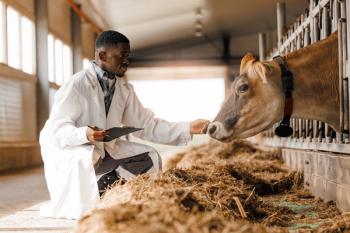
- dvm360 August 2020
- Volume 51
- Issue 8
Why we need more veterinary colleges at HBCUs
One veterinary student explains why establishing veterinary medicine programs at historically black colleges and universities (HBCU) is key to addressing systemic racism within the profession.
The first Black man to earn a Doctorate in Veterinary Medicine degree did so 123 years ago, in 1897. Seventy-one years ago, in 1949, the first Black woman followed in his footsteps. It has been 75 years since the establishment of Tuskegee University College of Veterinary Medicine (TUCVM), but African Americans today make up only 2.1% of the veterinarian workforce.1 It’s time for us to address this lack of diversity among American colleges of veterinary medicine.
Despite TUCVM producing roughly 70% of all African-American veterinarians, Black Americans continue to be underrepresented in the profession. In the past 10 years, five new colleges of veterinary medicine were established at Midwestern University, Lincoln Memorial University, Long Island University, University of Arizona, and Texas Tech University. None of these new colleges are at HBCUs.
According to 2019-2020 American Veterinary Medical Association data, 3% of the 13,548 students enrolled in US veterinary schools are Black, with African Americans treading behind all other ethnic-minority groups except for American Indian/Native Alaskans, foreign nationals, and students who choose not to divulge their race/ethnicity.2
It is imperative that we address the lack of diversity within the veterinary profession, but to do that we first must address systematic racism and oppression within higher education. The racism, oppression, and bigotry that have been the subject of recent public outcry exist within the confines of classrooms all across America, and lack of representation makes it nearly impossible for Black Americans to pursue a number of careers, including veterinary medicine.
To truly do away with the injustices against African Americans in this country means to provide HBCUs with appropriate funding. Moreover, to increase the number of Black Americans who pursue a Doctorate in Veterinary Medicine degree, there must be more colleges of veterinary medicine at HBCUs. One is not enough!
It is well past time for another veterinary school at one of our nation’s HBCUs. Take your pick: Delaware State University, Florida A&M University, Lincoln University of Missouri, North Carolina A&T State University, South Carolina State University, Tennessee State University, University of Arkansas Pine Bluff, University of Maryland Eastern Shore, Virginia State University, West Virginia State University, University of the District of Columbia, and many others.
Black lives matter, Black representation matters, and Black veterinarians matter! We are greater than 2.1%.
Jonathan Dumas is a third-semester student at Ross University School of Veterinary Medicine and is the current Student American Veterinary Medical Association/Student Government Association president.
References
1. Labor force characteristics by race and ethnicity, 2017. U.S. Bureau of Labor Statistics. Published August 2018. Accessed August 11, 2020.
2. AAVMC annual data report 2019-2020. American Association of Veterinary Medical Colleges. Accessed August 11, 2020.
Articles in this issue
about 5 years ago
Gene editing in animals: Miracle or madness?about 5 years ago
Compassion-First adds 43rd veterinary practiceabout 5 years ago
First diagnostic test for canine IBD now availableabout 5 years ago
FDA approves generic carprofen chewable for dogsabout 5 years ago
When cats get hangry…about 5 years ago
DNA debunks age-old ratio for dog years to human yearsabout 5 years ago
Quiet, please!about 5 years ago
Merck completes acquisition of Sentinel parasite productsNewsletter
From exam room tips to practice management insights, get trusted veterinary news delivered straight to your inbox—subscribe to dvm360.






